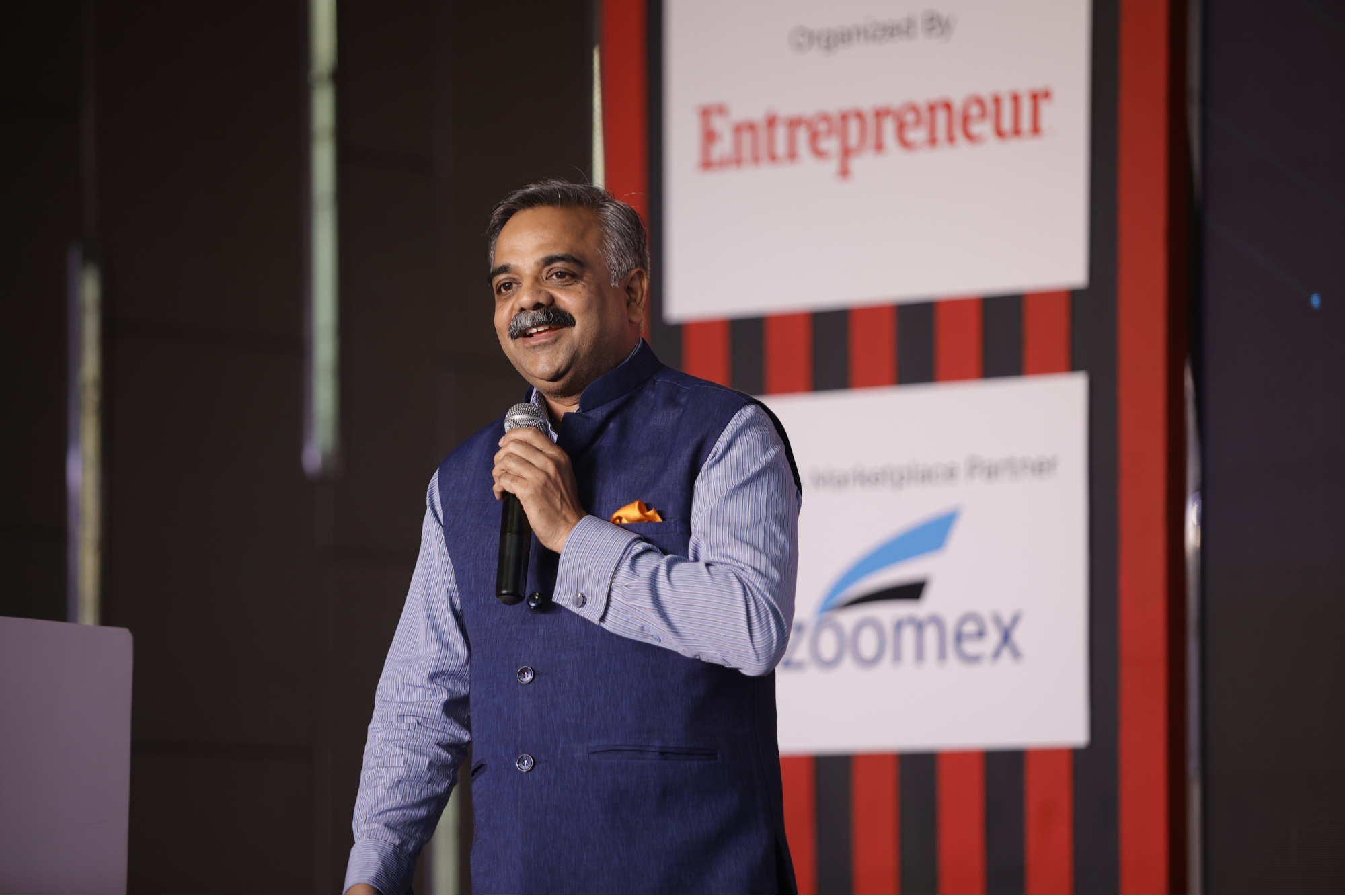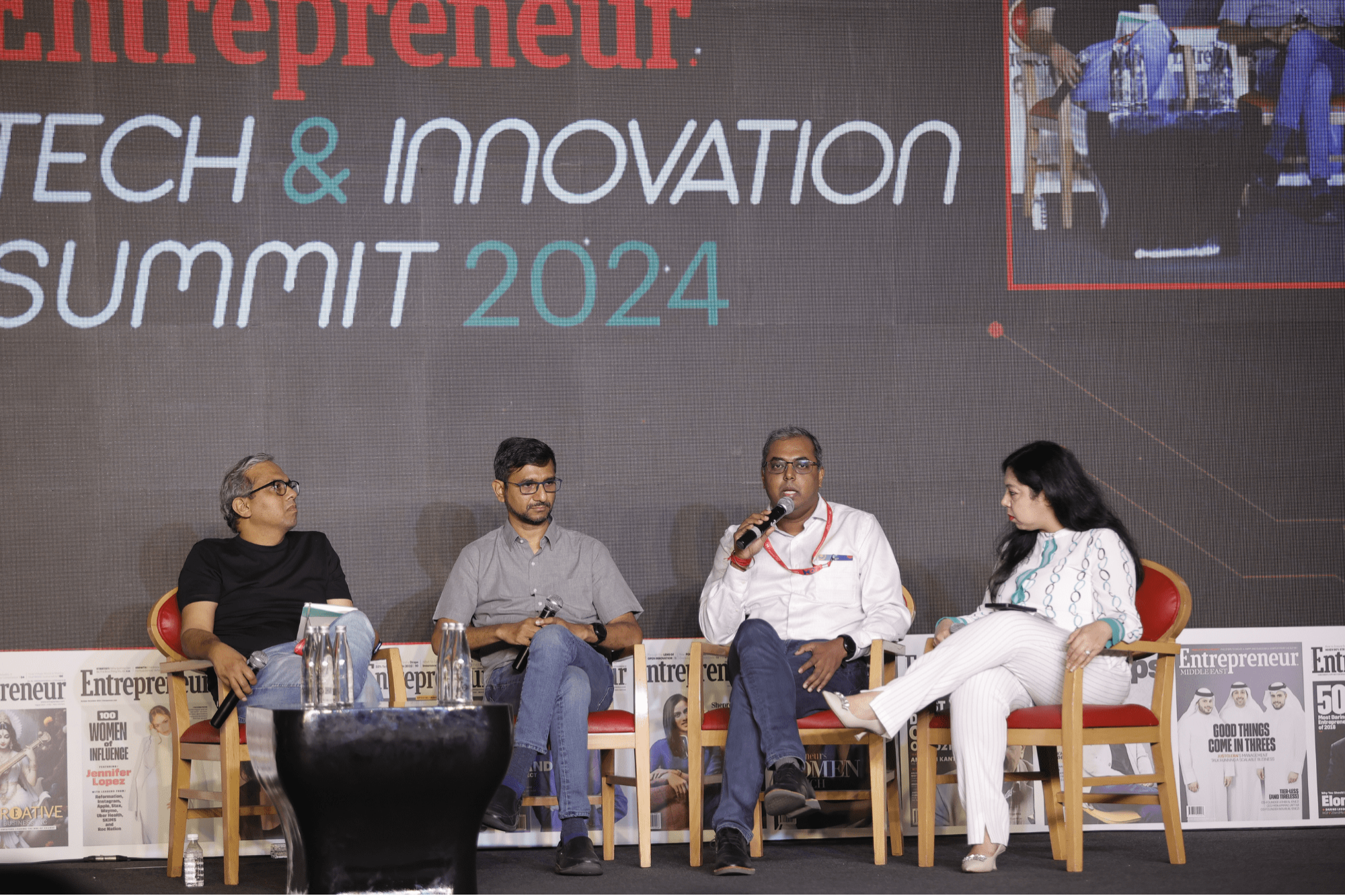How Corporates Are Leveraging Tech For A Sustainable Tomorrow From achieving operational efficiency to higher profitability to winning consumer approval, corporates across verticals such as real estate, hospitality, e-commerce, talent resourcing and so on believe tech to be at the heart of any and every sustainable revolution
By Soumya Duggal •
Opinions expressed by Entrepreneur contributors are their own.
You're reading Entrepreneur India, an international franchise of Entrepreneur Media.

There was a time when the demand for running companies along principles of environmental sustainability would invite the ire of business owners since efforts to that end were considered a drain on resources, monetary and otherwise.
This old notion is no longer relevant, believes Ramnath Vaidyanathan, AVP, Good & Green, Godrej Industries Limited & Associate Companies. "Most investor calls today spend around 80 per cent of the time discussing ESG activities. Further, the development of indices such as the Dow Jones Sustainability Indices and the MSCI Global Sustainability Indexes and their year-on-year trackers of ESG-focussed companies has revealed that such ventures financially far outperform businesses without any element of sustainability," he elaborates.
With an overwhelming focus on climate protection, environmental, social and corporate governance (ESG) is increasingly becoming a major concern for companies, investors and government regulators given that being ESG-positive helps businesses minimise costs and risks and maximise profits. While Indian corporates appear to have improved their ESG reporting by 160 per cent in recent time, as per a report released by CareEdge Research last month which analysed data on top 1,000 listed entities over the past three fiscal years, much needs to be done for the standardisation of ESG frameworks to increase accountability and transparency. Notably, the Securities and Exchange Board of India (SEBI) has recently approved the regulatory framework for ESG disclosures, ratings and investing, mandating the introduction of BRSR (Business Responsibility and Sustainability Report) Core to enhance the reliability of such disclosures.
As the government continues to make commercial enterprises necessary stakeholders in the country's ongoing green transition, Indian corporates insist that technological innovation will be the heart of any and every sustainable revolution.
Sustainable Businesses and the Midas Touch of Tech
According to Vaidyanathan, the sustainable journey of Mumbai-based conglomerate Godrej Group began in 2011 with the setting up of the 'Good & Green' strategy for bringing about positive social and environmental impact. "Technology's ability to collate and analyse data has made all the difference to our supply chains. For instance, innovative tech tools help us conduct life cycle assessments and pin point hotspots for the improvement of products. Further, they help us understand which raw materials have created the biggest hotspots, say, over the last 20 years so that we can design a new product development framework to phase out that raw material," he explains.
Having largely achieved the targets set for the previous decade, such as carbon neutrality, water positivity, zero waste in landfills, increasing renewable energy use and reducing emissions, Godrej is now contending with going beyond its operations and transforming supply and value chains as well as influencing consumers develop a preference for sustainable products.
The experience resonates with Dharashree Panda, the director of sustainability at ecomm giant Flipkart, who believes that tech plays a key part in every single transformation in the value chain. "Consider fashion: from using space technologies such as hyperspectral imaging to understand the agricultural impact of cotton production before sourcing the fabric to engendering efficiencies in the manufacturing processes to eliminate water wastage (or even use), technological innovations are involved everywhere," she explains.
For players in those sectors that are infamous for their adverse environmental impact, such as real estate and hospitality, leveraging new technologies is even more important. Jitesh Brahmkshatriya, senior director and head of cities consulting and valuation, CBRE, leads a number of high-tech sustainable design and planning projects right from a two-acre low-carbon social housing project on a landfill site in Torbay, UK, to developing low-carbon planning and design tools for cities in India funded by the UK government. "Given the rather large scale of its operations, the real estate sector can cause an equally expansive good environmental impact as bad," he says. Shruti Shibulal, CEO and director, Tamara Leisure Experiences, is similarly mindful of the sweeping scope of her hospitality brand's operations. "Unlike the usual seperation between developers, who develop properties, and operators, who operate properties, I am able to synthesise the two and control the entire life cycle of a hotel and incentivise developers to institute energy efficiency at a holistic level," explains Shibulal.
The issue of incentivising sustainable processes and technologies rings true for manufacturing startup Runaya Group as well. Its CEO and co-founder, Anannya Agarwal, leads the company's sustanaibility practice to create techonologically advanced sustainable solutions for the resources and material sciences sector. "As markets for green aluminium, green steel, organic vegetables and more evolve and consumers start enquiring about the sustainability quotient of the product components, incentives will come in, so will legislations. We have already licensed seven different technologies, both Indian and global. We've procured a technology that recovers pure metal from complete waste and turns the waste into sellable products with almost no additional energy being required. Now we are also creating the world's most carbon-friendly aluminium; it is a small quantity but a good start regardless," he says.












